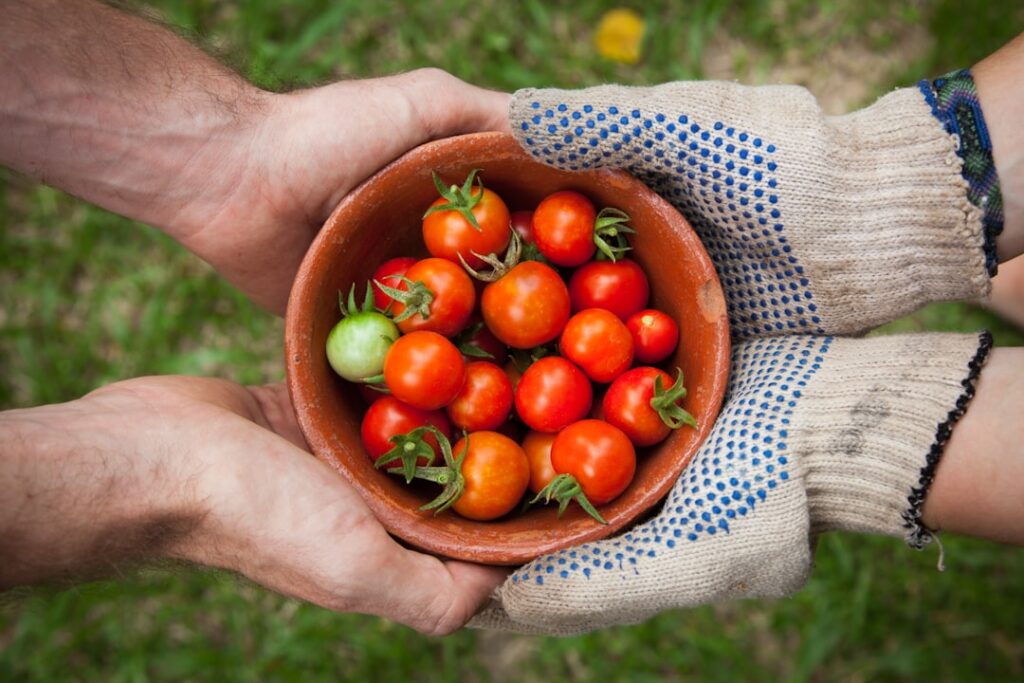Local roots are the foundation of a strong and vibrant community. They represent the connections and relationships that individuals have with their surroundings, including the people, businesses, and natural environment. These roots are essential for fostering a sense of belonging and identity, as well as for promoting a sustainable and resilient community. When individuals are connected to their local roots, they are more likely to take pride in their community and work towards its betterment. This can lead to a stronger sense of community cohesion and a greater willingness to support local businesses, farmers, and initiatives. Additionally, local roots can help preserve and promote local culture and traditions, ensuring that they are passed down from generation to generation.
Local roots also play a crucial role in promoting environmental sustainability. When individuals are connected to their local environment, they are more likely to take steps to protect and preserve it. This can include supporting local farmers who use sustainable farming practices, participating in community clean-up efforts, and advocating for policies that protect the natural environment. By fostering a strong connection to the local environment, communities can work towards creating a more sustainable future for themselves and future generations. Overall, local roots are essential for building a strong and resilient community that is connected to its surroundings and committed to its well-being.
Key Takeaways
- Local roots are important for building a sense of belonging and connection to the community.
- Building community through local connections fosters a sense of unity and support among residents.
- Supporting local businesses and farmers helps to boost the local economy and create a sustainable community.
- Strengthening community resilience through local roots ensures that the community can withstand challenges and thrive.
- Connecting with local culture and traditions helps to preserve the unique identity of the community.
Building Community through Local Connections
Building community through local connections is essential for creating a strong and vibrant neighborhood. When individuals are connected to their local community, they are more likely to feel a sense of belonging and support one another in times of need. This can lead to increased social cohesion and a greater willingness to work together towards common goals. Local connections can be built through various means, including participating in community events, joining local organizations, and supporting local businesses. By fostering these connections, individuals can build a strong network of support and create a sense of community pride.
Local connections also play a crucial role in promoting social equity and inclusion. When individuals are connected to their local community, they are more likely to be aware of the needs of others and work towards creating a more inclusive environment. This can lead to greater support for marginalized groups and a stronger commitment to creating a community that is welcoming to all. Additionally, local connections can help bridge the gap between different social groups and promote understanding and empathy among community members. Overall, building community through local connections is essential for creating a neighborhood that is inclusive, supportive, and united in its goals.
Supporting Local Businesses and Farmers
Supporting local businesses and farmers is essential for promoting economic vitality and sustainability within a community. When individuals choose to support local businesses, they are investing in the local economy and helping to create jobs and opportunities for their neighbors. This can lead to a stronger and more resilient local economy that is less dependent on external factors. Additionally, supporting local businesses can help preserve the unique character of a community by promoting locally-made products and services. This can lead to a greater sense of pride and identity among community members.
Supporting local farmers is also crucial for promoting sustainable agriculture and food security. When individuals choose to buy from local farmers, they are supporting sustainable farming practices and reducing the environmental impact of food production. This can lead to a healthier and more resilient food system that is less vulnerable to disruptions. Additionally, supporting local farmers can help preserve agricultural traditions and promote the use of locally-grown produce, which can lead to a greater connection to the land and the food that sustains us. Overall, supporting local businesses and farmers is essential for promoting economic vitality, preserving the unique character of a community, and creating a more sustainable future.
Strengthening Community Resilience
| Community | Resilience Metric | Measurement |
|---|---|---|
| Education | Literacy Rate | Percentage of population able to read and write |
| Healthcare | Access to Healthcare | Number of healthcare facilities per capita |
| Infrastructure | Disaster Preparedness | Number of emergency shelters and evacuation routes |
| Economy | Employment Rate | Percentage of working-age population with jobs |
Strengthening community resilience is essential for ensuring that a neighborhood can withstand and recover from challenges and disruptions. When individuals are connected to their local community, they are more likely to work together to address common challenges and support one another in times of need. This can lead to increased social cohesion and a greater ability to respond effectively to crises. Additionally, when individuals support local businesses and farmers, they are helping to create a more resilient local economy that is less vulnerable to external shocks.
Community resilience can also be strengthened through the promotion of sustainable practices and environmental stewardship. When individuals take steps to protect and preserve their local environment, they are helping to create a more resilient natural environment that can better withstand environmental challenges. This can include supporting sustainable farming practices, participating in community clean-up efforts, and advocating for policies that protect the natural environment. By fostering a strong connection to the local environment, communities can work towards creating a more sustainable future for themselves and future generations. Overall, strengthening community resilience is essential for creating a neighborhood that is able to withstand challenges and thrive in the face of adversity.
Connecting with Local Culture and Traditions
Connecting with local culture and traditions is essential for preserving the unique character of a community and passing down important values from generation to generation. When individuals are connected to their local culture and traditions, they are more likely to take pride in their community’s heritage and work towards preserving it for future generations. This can lead to a greater sense of identity and belonging among community members, as well as a stronger commitment to preserving local traditions.
Connecting with local culture and traditions can also help promote social cohesion and understanding among community members. When individuals participate in cultural events and traditions, they are able to learn about the experiences and perspectives of others, leading to greater empathy and understanding. This can help bridge the gap between different social groups within a community and promote a more inclusive environment. Additionally, connecting with local culture and traditions can help promote creativity and innovation by drawing on the unique heritage of a community. Overall, connecting with local culture and traditions is essential for preserving the unique character of a community and promoting understanding among its members.
Fostering Sustainable Practices

Fostering sustainable practices is essential for promoting environmental stewardship and creating a more resilient community. When individuals take steps to protect and preserve their local environment, they are helping to create a more sustainable natural environment that can better withstand environmental challenges. This can include supporting sustainable farming practices, participating in community clean-up efforts, and advocating for policies that protect the natural environment. By fostering a strong connection to the local environment, communities can work towards creating a more sustainable future for themselves and future generations.
Fostering sustainable practices also plays a crucial role in promoting economic vitality within a community. When individuals support local businesses and farmers who use sustainable practices, they are helping to create a more resilient local economy that is less vulnerable to external shocks. This can lead to increased job opportunities and economic stability within the community. Additionally, fostering sustainable practices can help reduce the environmental impact of food production and promote healthier lifestyles among community members. Overall, fostering sustainable practices is essential for promoting environmental stewardship, creating a more resilient economy, and ensuring a healthier future for all.
The Future of Local Roots: Cultivating Community Connections
The future of local roots lies in cultivating strong community connections that promote social cohesion, economic vitality, environmental stewardship, and cultural preservation. By fostering these connections, communities can work towards creating a neighborhood that is inclusive, supportive, and united in its goals. This can lead to increased social equity and inclusion, as well as greater resilience in the face of challenges.
The future of local roots also lies in promoting sustainable practices that protect the natural environment while supporting economic vitality within the community. By supporting local businesses and farmers who use sustainable practices, communities can create a more resilient economy that is less vulnerable to external shocks. This can lead to increased job opportunities and economic stability within the community while reducing the environmental impact of food production.
Overall, the future of local roots lies in building strong connections within the community that promote social cohesion, economic vitality, environmental stewardship, cultural preservation, and resilience in the face of challenges. By fostering these connections and promoting sustainable practices, communities can work towards creating a neighborhood that is inclusive, supportive, and united in its goals for a brighter future.
Local Roots is committed to providing high-quality, locally sourced products to its customers. In a related article on GenTeStore, you can explore the benefits of supporting local businesses and the positive impact it has on the community. Learn more about the importance of embracing local roots and how it contributes to sustainable and ethical consumer choices by visiting GenTeStore.
FAQs
What is Local Roots?
Local Roots is a term used to describe a business, organization, or individual that has strong connections to a particular community or region. It often implies a commitment to supporting and contributing to the local economy and culture.
Why is it important to support local roots?
Supporting local roots helps to strengthen the local economy, preserve local culture and traditions, and build a sense of community. It also often leads to more sustainable and environmentally friendly practices.
How can I support local roots?
You can support local roots by shopping at local businesses, attending community events, participating in local initiatives, and promoting local products and services.
What are the benefits of supporting local roots?
Supporting local roots can lead to a stronger sense of community, a more vibrant local economy, and a greater appreciation for local culture and traditions. It can also help to reduce environmental impact and support sustainable practices.






